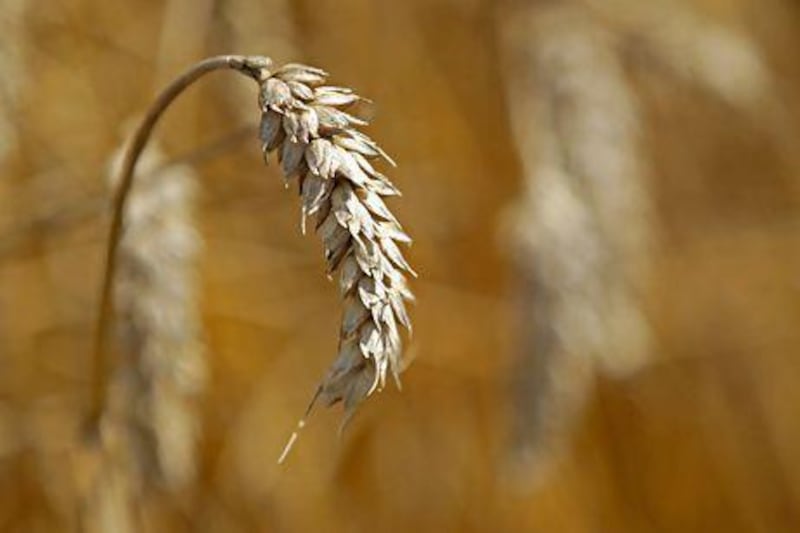Wheat prices rose this week as rain on Argentina's coastal region and dry weather inland damaged crops, forcing some grain buyers to seek supplies from the United States, the world's biggest exporter.
Argentina's agriculture ministry on Monday lowered its production forecast last week to 10.5 million tonnes from 11.1 million tonnes last month, citing heavy coastal rains and the first inland dust bowl in 85 years.
The government said last week it would halt exports through next month because of the weather. The US department of agriculture had forecast Argentina would be the world's eighth-largest wheat exporter this year.
"With Argentina out of the picture, it's going to be the US and Canada" that will be the main suppliers of high-quality wheat, said Louise Gartner, the owner of Spectrum Commodities.
Wheat futures for March delivery gained 0.2 per cent on the Chicago Board of Trade. The price has gained 22 per cent this year, after drought reduced output in the United States, Russia and Australia.
In the US, wheat is the fourth-largest crop, valued at $14.4 billion last year, behind corn, soybeans and hay, government data show.
Adding to upwards price pressures, Russia's wider Volga region may lose 20 per cent to 30 per cent of winter grains due to frost and snow, said Arkady Dvorkovich, the country's deputy prime minister.
Losses have been reported in Orenburg, Saratov, Penza and Ulyanovsk, as well as in Volgograd in the Southern Federal District, Mr Dvorkovich said at a government meeting on Monday. Organisation Grains' loss is because of frosts and thin snow layer, he said.
Mr Dvorkovich ordered the allocation of additional funds for reseeding where needed in the spring.
Nationwide, winter grain loss is estimated at about 8 per cent or 9 per cent, which is about average, Mr Dvorkovich said.
* compiled from Bloomberg News and Reuters






